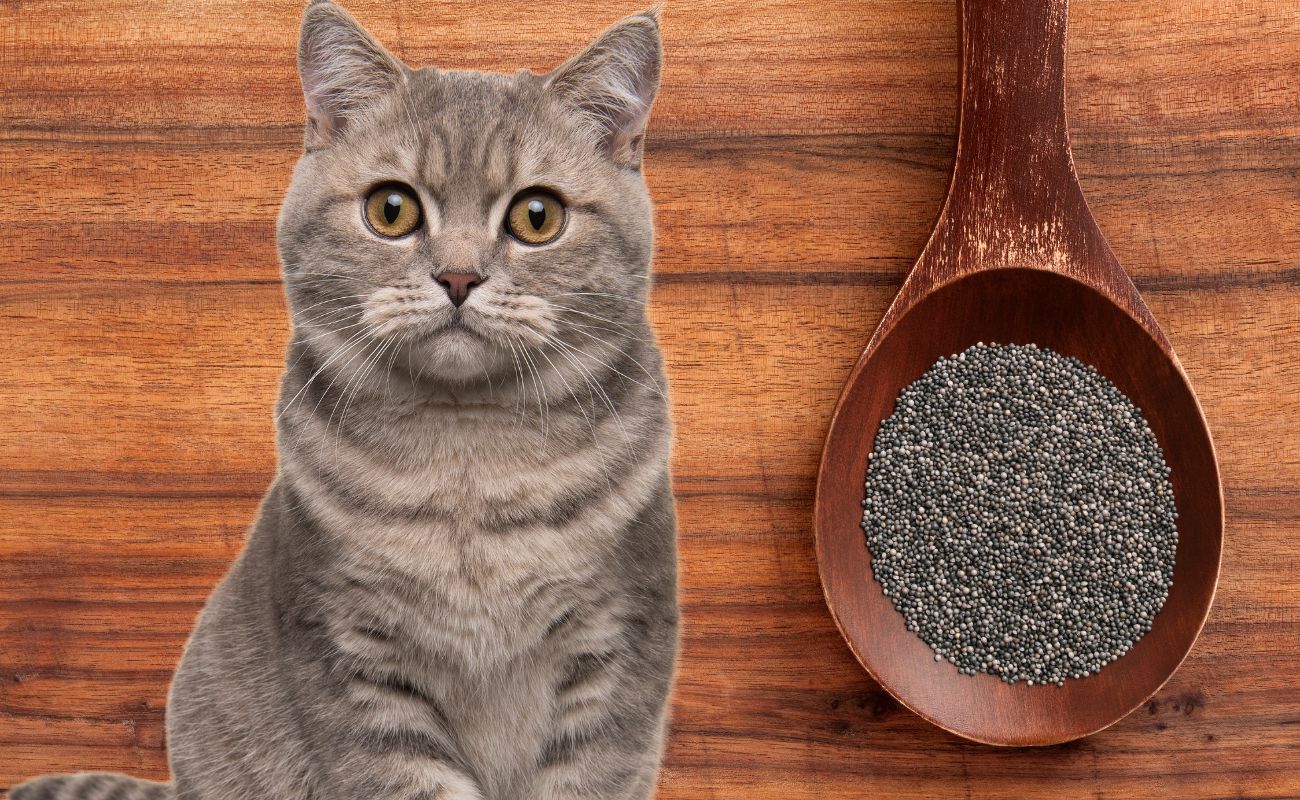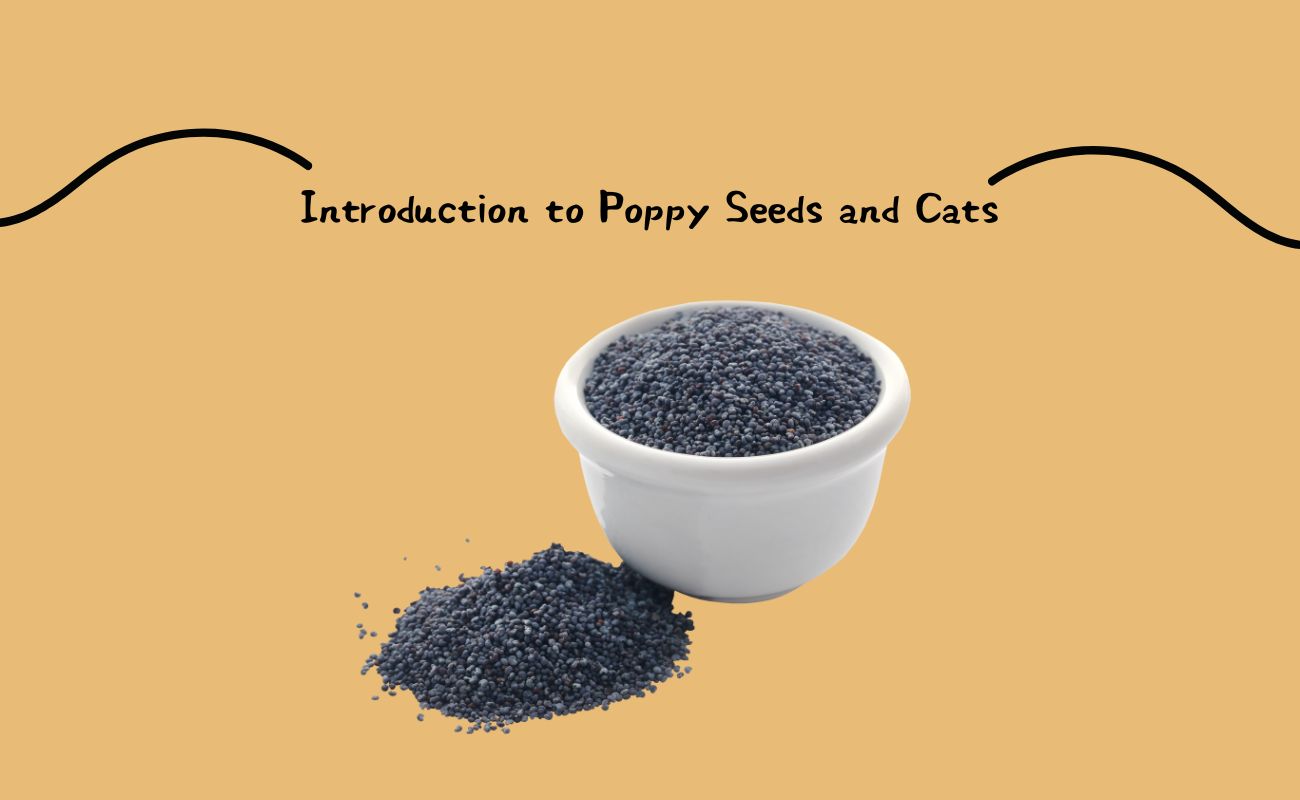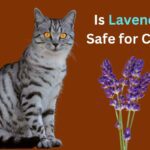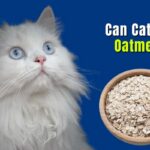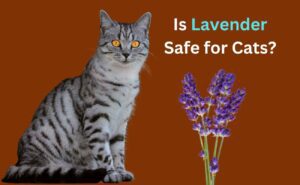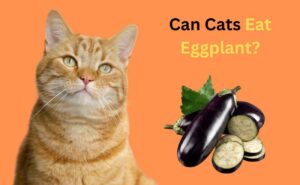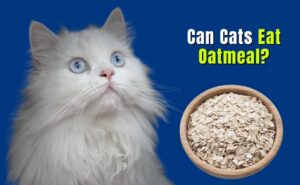Introduction to Poppy Seeds and Cats
Cats are curious creatures, often intrigued by new smells and tastes. As responsible pet owners, it’s essential to know which foods are safe and which are harmful to our feline friends. One common question is: are poppy seeds bad for cats? Poppy seeds, derived from the opium poppy, are commonly used in various culinary dishes and baked goods. While they add a delightful crunch and nutty flavor to human foods, their impact on cats can be quite different. In this blog, we will explore the potential risks of poppy seeds for cats and provide guidance on how to keep your pet safe.
The Composition of Poppy Seeds
To understand whether poppy seeds are bad for cats, it’s crucial to look at their composition. Poppy seeds contain small amounts of opiates, such as morphine and codeine. These substances are naturally occurring alkaloids that can affect the central nervous system. While the opiate content in poppy seeds is minimal, it can still pose a risk to cats, especially if consumed in large quantities. Cats have a different metabolic system compared to humans, making them more susceptible to the effects of certain substances.
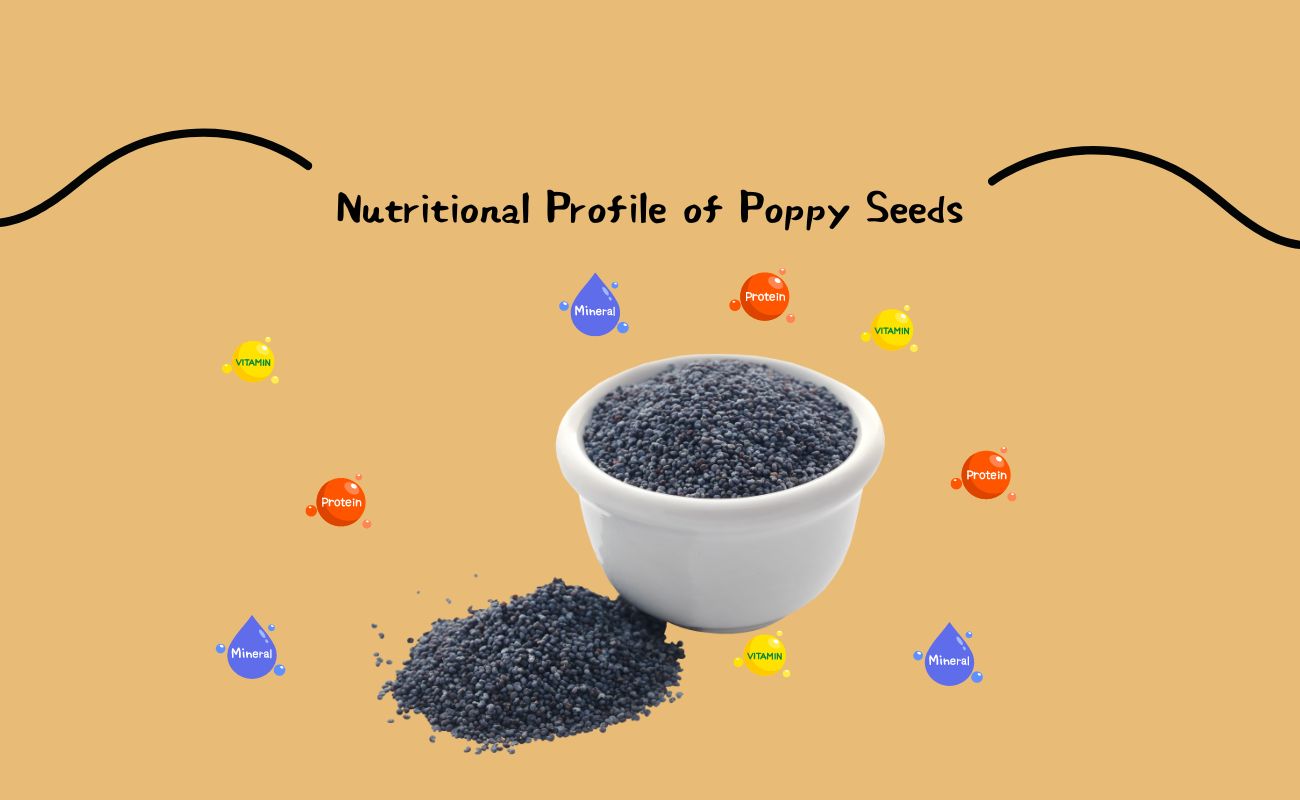
Nutritional Profile of Poppy Seeds
Here is a comprehensive table detailing the nutritional profile of poppy seeds per 100 grams:
| Nutrient | Amount per 100g |
|---|---|
| Calories | 525 kcal |
| Total Fat | 41.6 g |
| Saturated Fat | 4.5 g |
| Monounsaturated Fat | 5.97 g |
| Polyunsaturated Fat | 28.13 g |
| Cholesterol | 0 mg |
| Sodium | 26 mg |
| Total Carbohydrates | 28.13 g |
| Dietary Fiber | 19.5 g |
| Sugars | 2.99 g |
| Protein | 17.99 g |
| Vitamins | |
| Vitamin A | 0 IU |
| Vitamin C | 1 mg |
| Vitamin E | 1.77 mg |
| Vitamin K | 0 mg |
| Thiamin (B1) | 0.854 mg |
| Riboflavin (B2) | 0.1 mg |
| Niacin (B3) | 0.896 mg |
| Vitamin B6 | 0.247 mg |
| Folate (B9) | 82 µg |
| Minerals | |
| Calcium | 1438 mg |
| Iron | 9.76 mg |
| Magnesium | 347 mg |
| Phosphorus | 870 mg |
| Potassium | 719 mg |
| Sodium | 26 mg |
| Zinc | 7.9 mg |
| Copper | 1.63 mg |
| Manganese | 6.707 mg |
| Selenium | 13.5 µg |
This nutritional profile highlights that poppy seeds are a rich source of healthy fats, dietary fiber, protein, and several essential vitamins and minerals. However, it is crucial to remember that despite their nutritional benefits, poppy seeds are not safe for dogs and should be kept out of their diet.
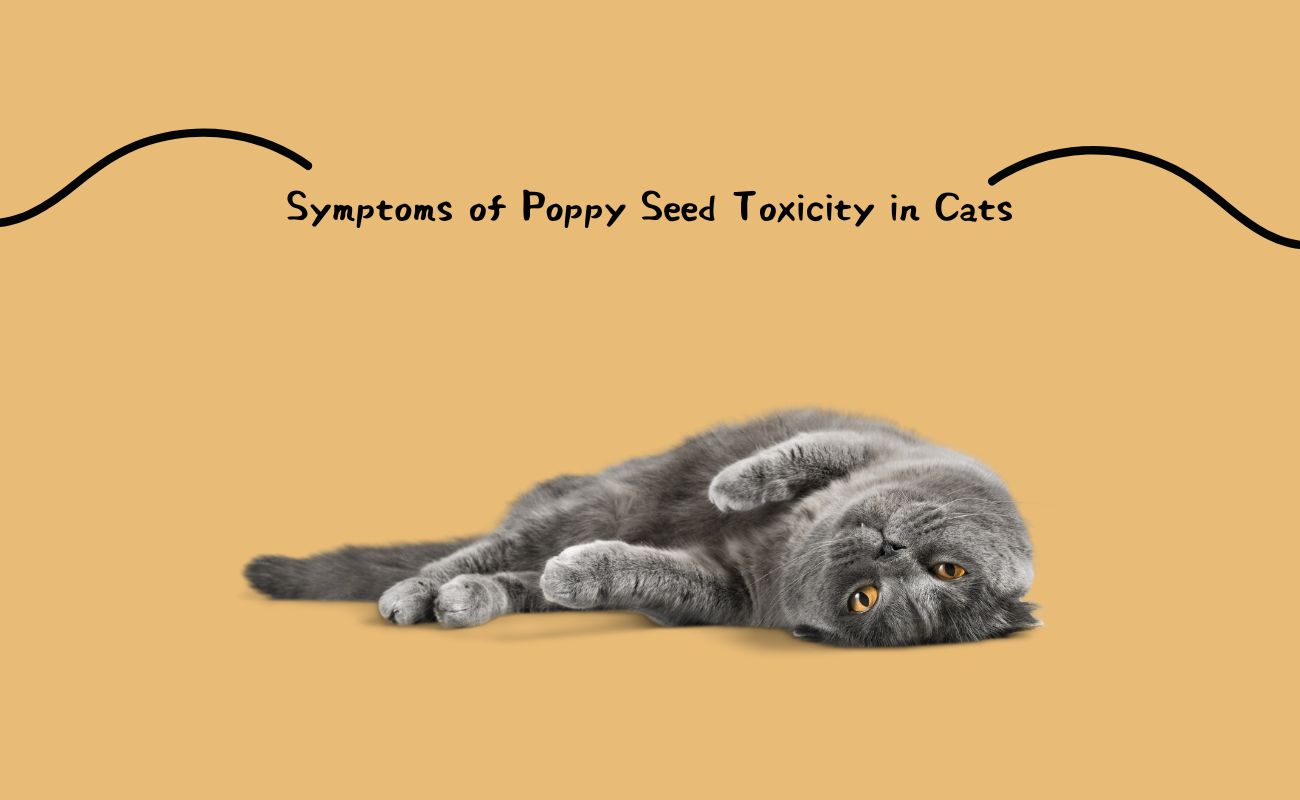
Symptoms of Poppy Seed Toxicity in Cats
If a cat ingests poppy seeds, it may exhibit various symptoms of toxicity. The severity of these symptoms can depend on the amount consumed and the individual cat’s sensitivity. Common signs of poppy seed poisoning in cats include:
- Lethargy: Affected cats may appear unusually tired or weak.
- Gastrointestinal Issues: Vomiting and diarrhea are common symptoms.
- Respiratory Distress: Difficulty breathing or rapid breathing may occur.
- Neurological Symptoms: Cats may experience tremors, seizures, or even coma in severe cases.
If you suspect your cat has ingested poppy seeds and is showing any of these symptoms, it’s crucial to seek veterinary care immediately.
Preventing Poppy Seed Ingestion
Prevention is always better than cure when it comes to the health of our pets. Here are some practical steps to prevent your cat from ingesting poppy seeds:
- Store Food Safely: Keep foods containing poppy seeds out of your cat’s reach. Store them in sealed containers or cabinets.
- Educate Household Members: Ensure that everyone in your household knows about the potential dangers of poppy seeds and other harmful foods for cats.
- Monitor Your Cat: Keep an eye on your cat during meal times and ensure they don’t have access to your plate or leftovers.
- Provide Safe Treats: Offer your cat safe and healthy treats to discourage them from seeking out human foods.
By following these steps, you can minimize the risk of your cat accidentally ingesting poppy seeds.
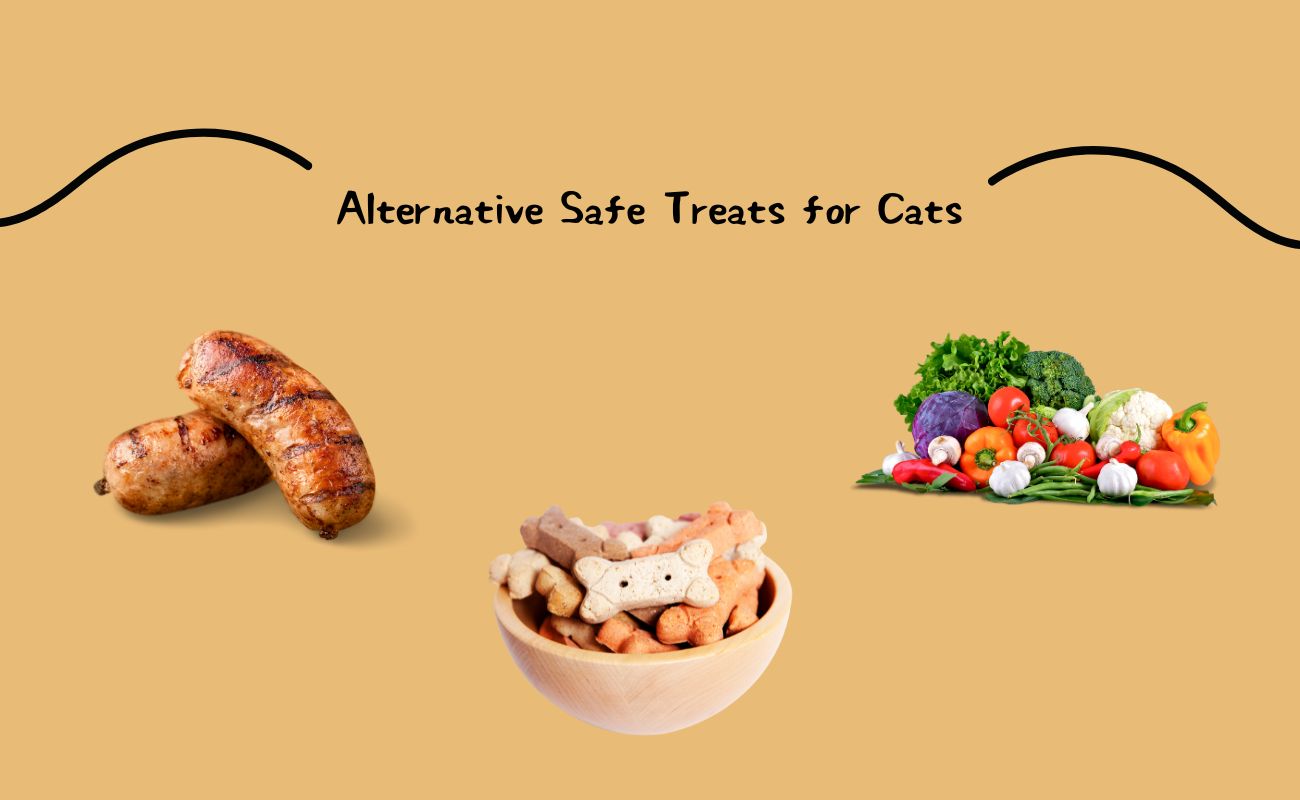
Alternative Safe Treats for Cats
While poppy seeds are not safe for cats, there are plenty of other treats that you can offer your feline friend. Some safe and healthy alternatives include:
- Cooked Meat: Small pieces of cooked chicken, turkey, or beef can be a tasty and nutritious treat.
- Catnip: Many cats enjoy catnip, which is safe and non-toxic.
- Commercial Cat Treats: Look for treats specifically designed for cats, which are formulated to meet their dietary needs.
- Vegetables: Some cats enjoy small amounts of cooked vegetables like carrots or peas.
Always introduce new treats gradually and in moderation to ensure your cat doesn’t have any adverse reactions.
Summary:
Are Poppy Seeds Bad for Cats?
In conclusion, are poppy seeds bad for cats? Yes, poppy seeds can be harmful to cats due to their opiate content. Even small amounts can cause symptoms of toxicity, making it essential to keep foods containing poppy seeds out of your cat’s reach. By being aware of the potential dangers and taking preventive measures, you can help ensure your cat’s health and safety. Always consult with your veterinarian if you have any concerns about your cat’s diet or if you suspect they have ingested something harmful. Keeping your cat safe requires vigilance and a proactive approach to their well-being.

